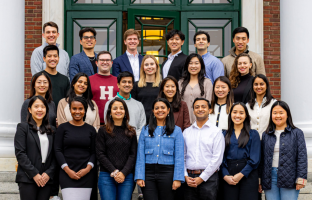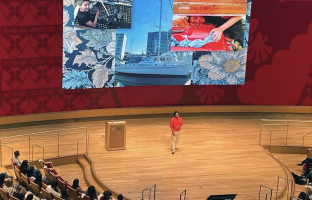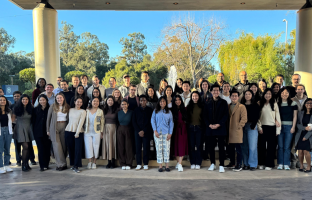After graduating at the University of Pennsylvania in 2012, Chloe Ho (MBA 2019) began her post-undergrad career in New York working for Morgan Stanley. While there, she served in a strategy and analytics role, working on projects for sales and trading management. However, after four years on the job, she realized that there was something missing—she knew that she needed more to give her career an edge.
“I could sense an increasing appetite for data and data-driven managerial decision-making,” says Ho. “I felt that this was a trend that was occurring across all industries, beyond just my immediate one of financial services. This highlighted the need for me to gain data fluency and competency—to invest in building out my data and analytics skillset for the sake of my career.”
When Ho decided to explore different career options for similar strategy roles outside the finance sector, the teams at tech-savvy startups, such as Squarespace, quickly confirmed her data-minded suspicion.
“I would successfully pass through several rounds of interviews, only to be stymied later on when handed a laptop for live coding exercises,” she says.
With these experiences in mind, Ho took matters into her own hands to break the technological glass ceiling.
She decided to invest in external courses—specifically, the Data Science program at General Assembly—to bolster her data and analytics expertise. During her 10-week course, Ho learned the Python coding language, picked up best practices in data mining and exploratory analysis, and familiarized herself with the ins and outs of various machine learning models.
Ho took this newly acquired data and analytics knowledge with her to HBS, and, subsequently, landed an internship at the Bay Area–based Samsung Innovation and Strategy Center during summer 2018.
While she appreciated the resources of a large organization like Samsung, Ho wanted to be closer to the action and build her experience in big data and artificial intelligence at a smaller firm. She accepted a job as Manager, Business Operations and Strategy, at Scale AI, joining the summer after she graduates from HBS. This Bay Area firm specializes in labeling and annotating data, creating high-quality datasets to inform use cases from autonomous vehicles to drones. Scale’s technology accelerates AI development by democratizing access to intelligent data.
“It has been said that ‘data is the new oil’—it is the next key and critical resource, one that confers significant competitive advantage to organizations and companies,” says Ho. “However, it is also generated and collected from all of us, and the insights derived feed into a wide variety of use cases, from recommendations on Netflix to personalized healthcare.”
As for kicking off her new career post HBS, Ho is excited to be a part of the booming AI revolution that provides not only innumerable consumer benefits, competitive advantage, and efficiency gains from the data being collected, but one that also presents larger existential implications.
“As this field continues to involve, there are broader implications on data ownership and governance, notions of personal privacy and ethics, and on the evolution of man-machine interactions and interfaces,” says Ho. “We as a society have the opportunity to decide where we stand on these issues and to proactively put in place the policies and institutions to enable a future that is not only data-driven, but one that is also just, ethical, and fair.”





.png&w=80&h=80)

.png&w=80&h=80)